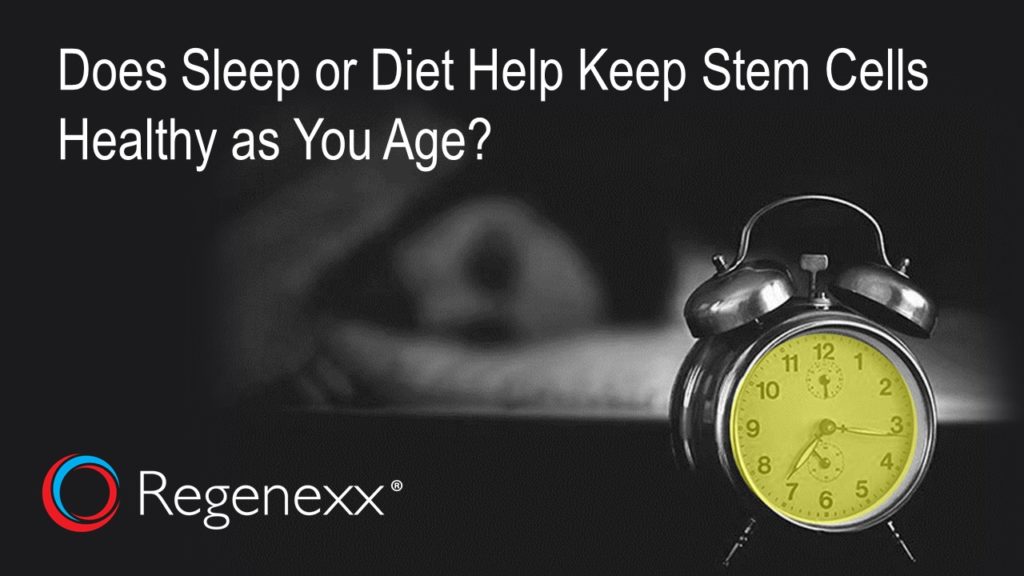The Circadian Rhythm of Stem Cells Reprograms as We Age

What Is the Circadian Rhythm, and How Does It Relate to Stem Cells?
You may be familiar with the circadian rhythm as it relates to your daily wake-sleep cycle. The human body naturally functions best when it’s following its own internal day-night rhythm (i.e., circadian rhythm). Animals and plants also have a circadian rhythm. But did you know even our smallest units of life—our cells—have their own circadian rhythm and function on a continuous 24-hour day-night cycle? Looking at stem cells specifically, this endogenous, or biological, “clock” regulates the processes of cell division and cell differentiation, providing repair and renewal of tissues and, therefore, may be a key in the aging process. Additionally, most of our cells sync up and follow the same rhythm.
Our bodies, as a whole, function best when they are in tune with their circadian rhythm, and the same can be said for our stem cells. For example artificial lights from our computers and electronics at night are detected through our photosensitive retinal ganglion cells. This slows the secretion of our sleep hormone, melatonin, making it difficult to get to get to sleep or stay asleep and disrupting our circadian rhythm. When our circadian rhythm is disrupted, it doesn’t just affect our sleep cycle, it affects our whole body, including your stem cells which can prevent the ability to keep stem cells healthy as you age.
While it’s long been believed that stem cells lose their circadian rhythm as we age, a new study suggests that they don’t lose it, they just reprogram it.
Stem Cells Reprogram Their Circadian Rhythm as We Age
The new study used two groups of mice: young mice (age 3 months) and old mice (age 18–22 months). Researchers compared skin, liver, and muscle stem cells in the two groups multiple times over a period of one day. The study found that rather than losing their ability to recognize day-night cycles with aging, the common belief in the scientific community, stem cells actually reprogram their circadian rhythm. What does this mean? In this case, they found that the stem cells’ ability to protect and maintain tissues by longer stretches of regeneration during down time was replaced in the aging mice with shorter rhythmic periods allowing the cells to cope with stress. Without the ability to regenerate tissues, more damage and aging ensues.
Another interesting finding was that the reprogramming of these functions can be delayed with the consumption of a diet low in calories, therefore slowing down aging, at least in mice. Other studies have shown low-calorie diets slow aging in primates.
Ways to Keep Stem Cells Healthy as You Age
While it wasn’t within the scope of the study above to determine how reprogramming happens in our aging stem cells, we do know studies have shown some things that could possibly delay the reprogramming of our stem cells as we age.
- Taking an NAD supplement to rejuvenate stem cells that have experienced mitochondrial burnout from aging.
- Taking a CoQ10 supplement to help with mitochondrial damage.
- Lengthening our telomeres, the parts of our chromosomes that protect our genetic information, by exercising.
- Not smoking. While this in and of itself might not delay the reprogramming of our stem cells as we age, smoking will certainly damage our stem cells and speed up the process of aging.
- In the future, we may be able to replenish the brain’s hypothalamus stem cells to slow the process of aging.
The upshot? Keeping your cells healthy as you age is critical as after all, you’re made of cells. More important is paying attention to the cells that repair the damage we all get every day, your stem cells! While nobody wants to go around consuming fewer calories every day, some intermittent calorie restriction may be a critical part of keeping our stem cell healthy. More on that approach coming up on the blog!

NOTE: This blog post provides general information to help the reader better understand regenerative medicine, musculoskeletal health, and related subjects. All content provided in this blog, website, or any linked materials, including text, graphics, images, patient profiles, outcomes, and information, are not intended and should not be considered or used as a substitute for medical advice, diagnosis, or treatment. Please always consult with a professional and certified healthcare provider to discuss if a treatment is right for you.
